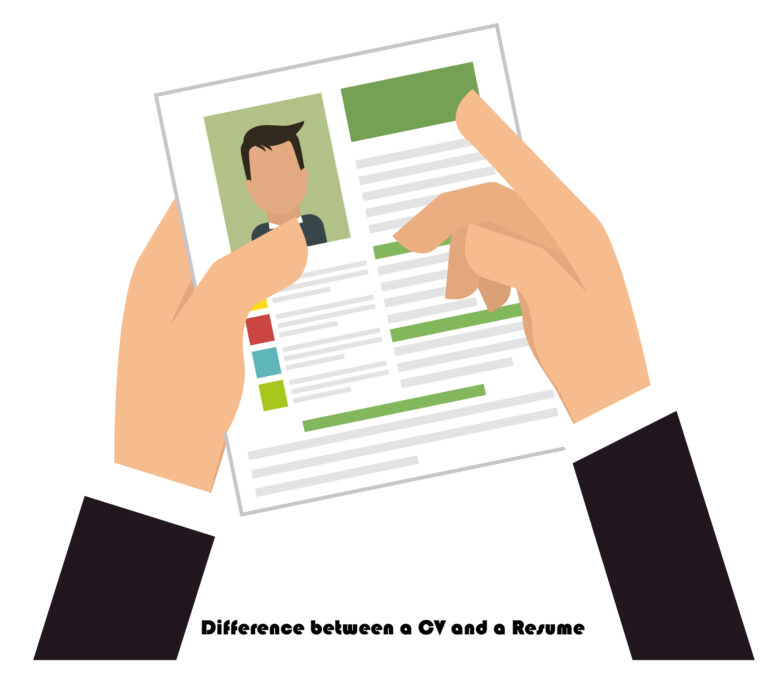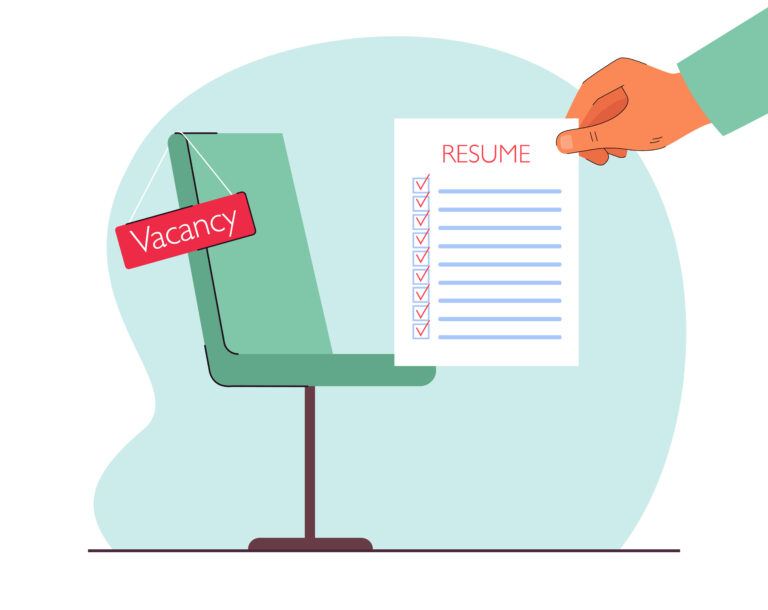What Is the Difference Between CV and Resume?

Everybody is well-versed in the words resume and CV in the world of human resources and job seekers. Both of these documents are used to showcase your skills, qualifications, and experience to potential employers. But do you know there is an important difference between these two? Understanding the nuances of a CV and resume can make all the difference when it comes to landing your dream job. In this blog space, we will talk about how a CV and a resume differ. So let’s dive in and explore the difference between a CV and a resume!
What Exactly is a CV?

CV stands for curriculum vitae, which is a neo-Latin word and means “course of life.” It is an extensive document having all the details about job seekers, such as academic background, competencies, experiences, skills, and accomplishments. A CV can be a long document of up to 20 pages, mainly used in academic jobs. For instance, a CV is a winning option if you are applying for a job position as a teacher or any academic-related post. The key component of a CV is an educational experience that makes you stand out among other candidates. However, a CV can be referred to as a professional biography, while a resume is more like an elevator pitch.
Types of CV
There are many types of CVs, but most candidates and hiring managers stick to the traditional chronological format. However, there are many scenarios in which candidates can consider other formats.
Functional Formatted CVs
This format is also known as a skill-based CV, as it completely focuses on the skills and expertise of the candidates rather than their professional experience or background. This resume format can be a winning option for entry-level applicants and career changers.
Chronological Formatted CVs
This is the most preferred format by hiring managers. It prioritizes the individual’s work experience, and lists the work experience in descending order according to dates. This format refers to the best candidates with a strong professional background in the same industry or field.
Combination Or Hybrid Formatted CVs
This format is a mixture of functional and chronological formats. It does not prioritize any particular elements over each other as it divides the hiring manager’s attention equally on every part. This format is ideal for individuals with notable accomplishments and continuous career progression.
Academic Formatted CVs
The academic world has a different format than other industries and niches. In most cases, these types of CVs emphasize the individual’s different academic achievements, such as research, publication, grants, fellowships, and professional associations.
What is a Resume?

In comparison, a resume summarizes an individual’s career achievements. These are easily readable by human eyes as well as scannable by different ATS software. A resume explains a person’s career journey through experience, skills, and academic background in 1 or 2 pages. A resume can be customized according to the job posting you are applying for. It highlights the complete skill set, including hard and soft skills, which can be helpful for ATS passing.
Types of Resume
Job seekers use different types of resumes according to their level of skills and professional experience to acquire their dream job. Types of resumes can be categorized based on their formats that are been given below:
Chronological Formatted Resume
This is the most common resume format that the corporate and experienced employees utilize. It focuses on the work history in reverse chronological format (descending order) with accurate dates. An employer might ask for work-related experience in ascending order, or chronological order. A resume can be customized in different aspects, such as object or summary, skill set, and achievements.
Functional Formatted Resume
This is one of the traditional resume formats used by individuals who have career swings or gaps in their employment history. Now, this format is becoming increasingly popular as the majority of employers prefer skills and accomplishments over a long employment history.
Creative Formatted Resume
If you want a job then you must do something so unusual that you stick out like a sore thumb, but in a good way. Since everyone uses the same Microsoft Word to write their resume, a recruiter might begin to yawn. So, you use parched paper instead of a traditional white page, use colors generously, add infographics, and other informal tactics to format your resume. Creative artist, graphic designers, and photographers commonly use this format.
CV and Resume - Choose Which One Is Better for You?
Using a CV or resume depends on the job and industry requirements. CVs suit academic/research roles, while resumes are better for corporate/business positions. Customize your application to highlight skills, expertise, and experience, standing out for interviews. Keep it concise, organized, and error-free to make a strong impression. FRW is the option for your search query, resume writing services near me. We have a variety of expertly crafted resume examples and resume writing experts that can help you with every type of format that can be easily tailored to job needs.


